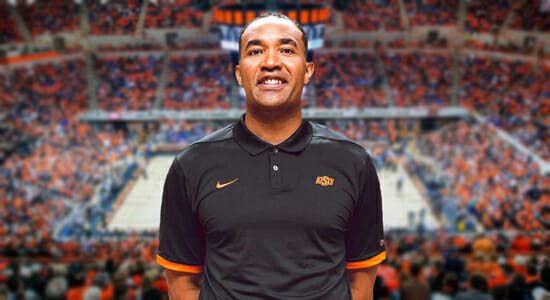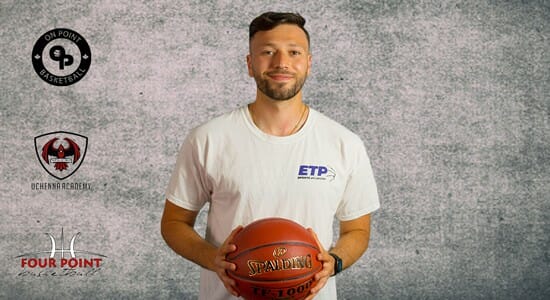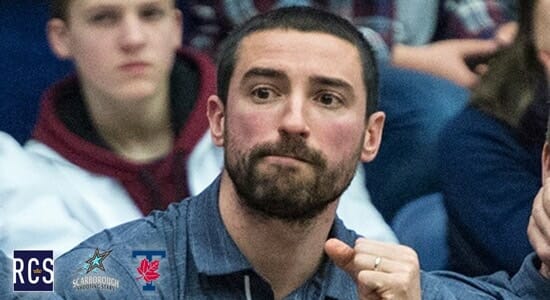
Achieving Success In Player Evaluation Requires Seeing The Value In All Organizational Aspects
Vince Magri | Director of Canadian Scouting | Toronto Argonauts



I was able to gain an appreciation for working directly with players and being hands-on, helping me to understand that finding the right player is not just about talent, but also about fit, especially in terms of scheme, personality, and character.
Vince Magri
Director of Canadian Scouting
Toronto Argonauts
You started your work in football as a video coordinator and in assistant roles on offense, while starting to recruit players. What were the crucial things you gained from these experiences that helped you with moving to your current position with the Argos?
The most important thing gained from occupying all of these different roles was being able to develop a deeper, more macro-level view of an entire football operation.
The next thing that happened was being able to gain an appreciation for all the work that goes into winning a football game each week while creating a competitive and successful organization.
I did this by seeing first hand how the players, coaches, player personnel, and support staff are all equally vital components in making that all come together.


In the beginning, what did you find compelling about evaluating players through coaching and working in video?
I had always had an interest in player evaluation and team building from a very young age as an avid football fan who consumed as much of the sport as humanly possible at every level.
I knew that working in the business was exactly what I wanted to do as soon as my playing career was over.
By beginning in coaching, I was able to gain an appreciation for working directly with players and being hands-on, helping me to understand that finding the right player is not just about talent, but also about fit, especially in terms of scheme, personality, and character.
Working in video gave me a chance to get my eyes on all prospective players and/or opponents first.
I was able to continue to develop my eye for talent while continuing to study the game and current successful trends at all levels of collegiate and professional football, while also having the ability to work on a daily basis with both the coaching staff and the player personnel department.


You have been working as a scout for the Toronto Argonauts for 7 going on 8 years now. What is the toughest part of being in a player evaluation role that consists of objective and subjective elements?
What makes player evaluation difficult is that the process is intrinsically subjective.
Even when you are given traditionally objective information, such as measurements, athletic metrics, and statistics, the way in which each team processes that identical information is very much subjective and specific to that organization.
In addition, there are other factors such as film evaluation, in-person scouting, background/character information, and player interviews that add even more subjectivity to the process.
Having underlying knowledge of your own organization’s philosophies and culture for both on and off the field, as well as the overall scope of talent across the entire league, can help you to make the most accurate decisions possible to achieve future success.


Who have been some people that have helped you the most with regards to player evaluation and honing your craft?
The amount that I learned in my first year in the CFL was immense.
I will always be grateful to have had the opportunity given to me by Jim Barker, and having the privilege of working under him and Scott Milanovich taught me so much about the sport, about the business, and about building a team – lessons that will always stay with me.
I was extremely blessed to be able to go into my first year in pro football and be able to work with and learn different things from incredibly successful football professionals on our staff like Chris Jones (Cleveland Browns, former GM/HC Saskatchewan), Mike O’Shea (HC Winnipeg), Marcus Brady (Indianapolis Colts QB Coach), Jason Maas (OC Saskatchewan, former HC Edmonton), and so many others.
I was able to learn a lot working under Jim Popp and Marc Trestman while winning a Grey Cup in 2017. I have been lucky enough to meet a lot of people in the business on the road on both sides of the border that I have been able to lean on and learn from while continuing to grow and develop myself professionally.


With player evaluation having gone virtual this year, what are some of the challenges and benefits of this current situation?
To be honest, there have been very few benefits, aside from being able to spend more time home with friends and family, which is no small thing by any means.
However, professionally, it has been a very challenging process this year, with certain schools not playing, not being able to scout players in person, missing metrics and testing results, and losing valuable in-person conversations with the players and their coaches.
You do lose a lot by not having those interactions on campus, and there are always things that you can see/feel/hear in person that don’t always show up on film.
With that being said, we are in a very competitive business and like everyone in our society these days, we have been forced to adapt and find new ways to do the best job that we can with what we have at our disposal.
That leads to even more film study, using Zoom for meetings and interviews, leveraging contacts and relationships all over the continent that have been established over the years, and coming up with new and creative methods using some outside of the box thinking to try and maximize our resources in this climate.
What is the biggest challenge in the professional sports industry related to player personnel?
I think one of the biggest challenges some people have in the profession is realizing that this is people’s business.
Players are not pieces on a chessboard but are people with feelings, careers, and families to support, and they are putting their bodies on the line for not just themselves, but their teammates, organizations, and well-being of their families.
It also just as important to remember that teams are not static, lifeless objects – they are a living, breathing organism, and cultivating real relationships with people go a long way towards bringing out the best in the entire organization.
Obviously, this is still a bottom-line business that includes roster limitations and salary caps, but treating people well on their way into the building, while they’re inside of it, and on their way out of it, are all just as equally important to creating a culture that people want to be a part of and will want to win for.
It was a great pleasure to speak with Vince Magri about his journey into scouting with the Toronto Argonauts. With how subjective things can be in the role of player evaluation, Vince’s precise work and due diligence are needed to bring in the best players for the organization. He has taken a thoughtful path on route to Toronto, and for people who want to get into the player evaluation side of sport, this article gives great insight on how to navigate this sector of the industry. Vince is a role model for all young aspiring pro sports scouts.
The Latest







